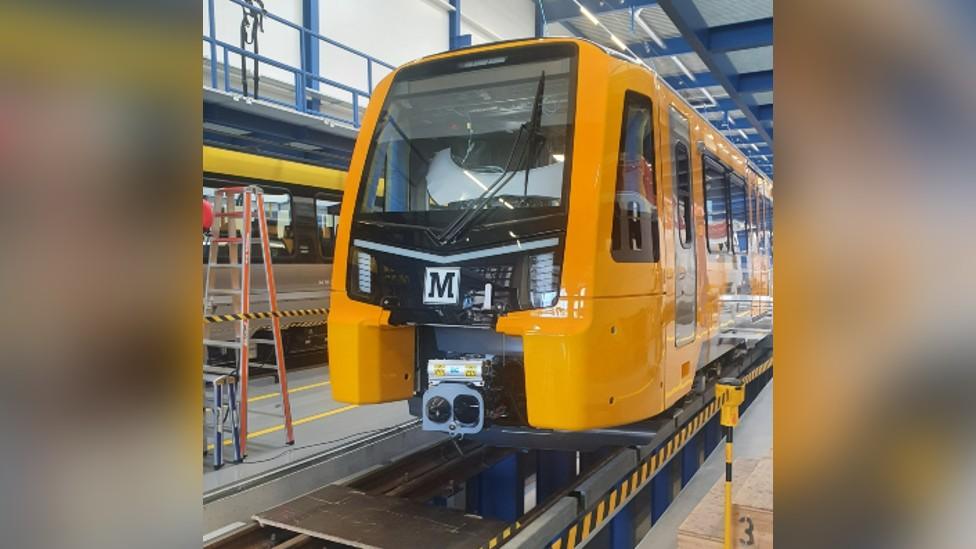Metro scraps wi-fi plan on new trains over cost
- Published
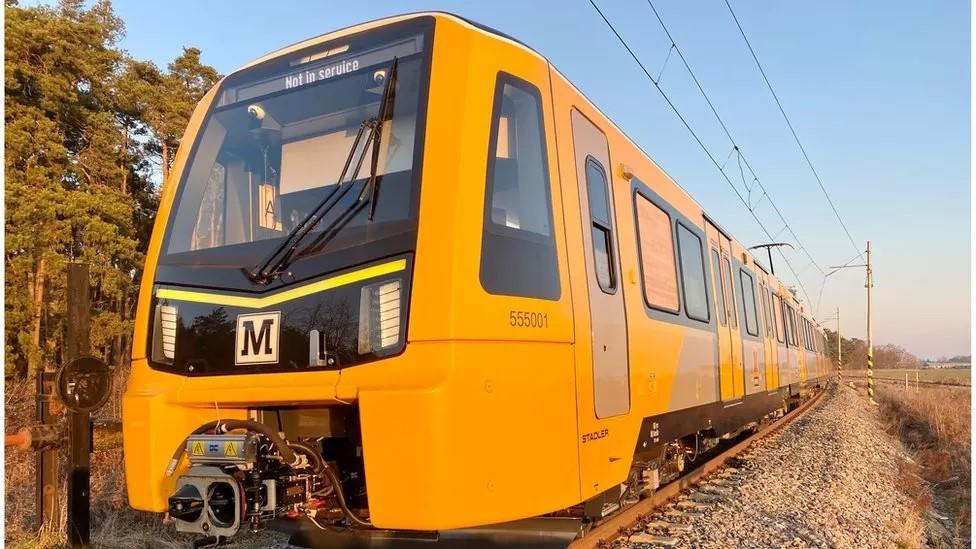
The first of Metro's 46 trains new trains is due to enter service later this year
Plans to install wi-fi on the Tyne and Wear Metro have been dropped after being deemed too expensive.
It was meant to be one of the upgrades coming with the Metro's long-awaited new £362m fleet of 46 trains.
But bosses have opted against the move, saying it would be too costly and likely used by "very few" people.
Operator Nexus said it would focus its investment on improving 4G and 5G signals, and getting rid of "not spots" including tunnels and near the coast.
EE customers have enjoyed 4G in the Metro tunnels underneath Newcastle city centre and Gateshead since 2019, but Nexus said efforts to get other mobile networks on board were hampered by the Covid-19 pandemic.
"We've done research with customers which shows that people now value a good connection for their phone, using their own data, rather than wanting to log in to a wi-fi service provided by a train operator, particularly when most people travel on Metro for only a short period," customer services director Huw Lewis said.
"This is not surprising because data is cheap and the signal from masts in and around railways is much stronger than it was a few years ago - in fact research a few years ago by comparable operators showed as few as 4% to 5% of customers choose to use on-train wi-fi."
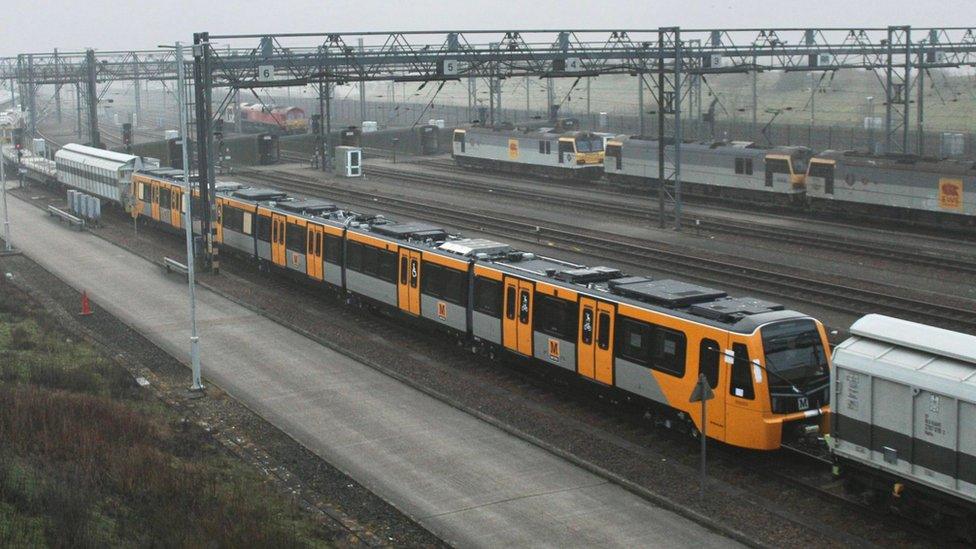
The first new Tyne and Wear Metro train near Folkestone earlier this week
The first of the new Metros has already arrived in the UK from Switzerland where it was built, before it travels to the North East.
Others are going through testing on a special track in the Czech Republic, where Metro drivers have been learning how to operate them.
While the new trains, which should start entering service later this year, will not have wi-fi, they will still boast a raft of other improvements including air conditioning and charging points, the Local Democracy Reporting Service said.
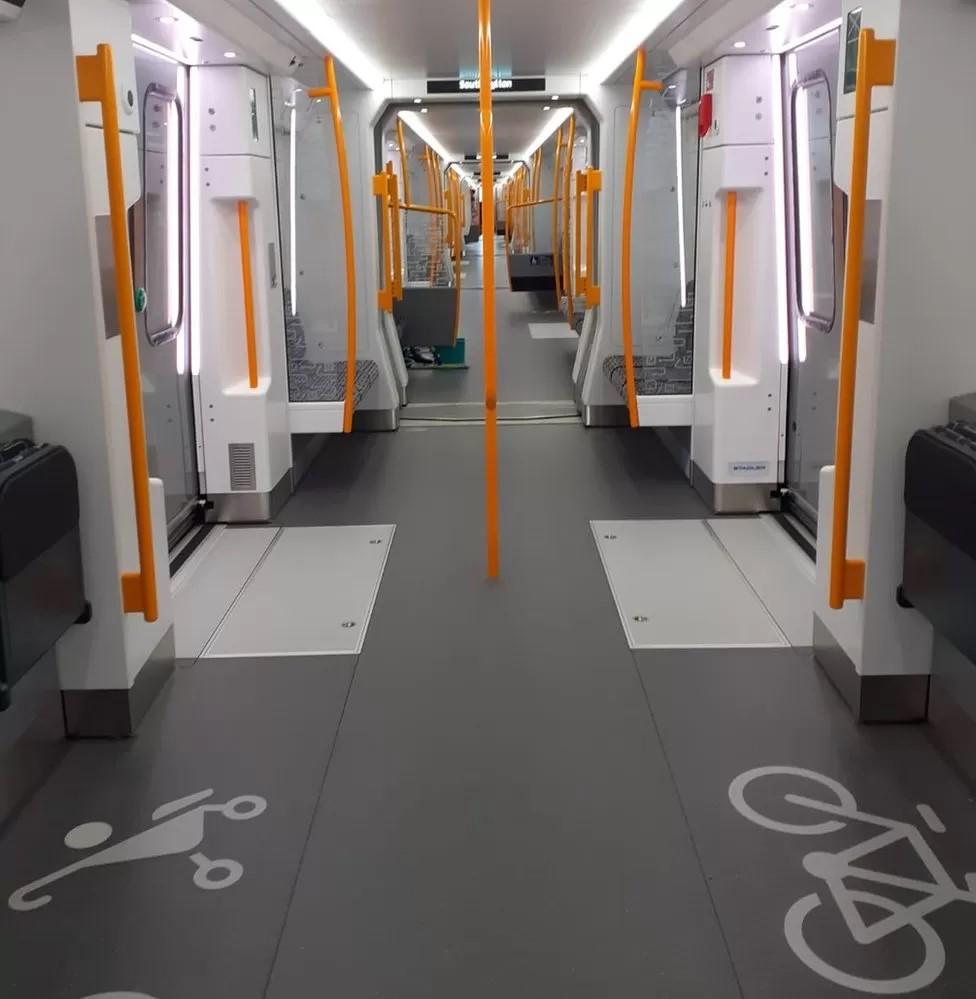
The new Metros includes improved access for wheelchair users and pushchairs
"On-train wi-fi is expensive to provide and maintain, and itself relies on local masts for connectivity, and we now feel it offers little benefit to customers compared to the high cost of building then maintaining a bespoke system," Mr Lewis added.
"What we are doing now is engaging with the major network providers to build a plan to improve connectivity steadily for all mobile customers, and while this will take time, we are confident we will see a steady improvement as this programme develops."

Follow BBC North East & Cumbria on Twitter, external, Facebook, external and Instagram, external. Send your story ideas to northeastandcumbria@bbc.co.uk, external.
Related topics
- Published24 February 2023

- Published17 February 2023
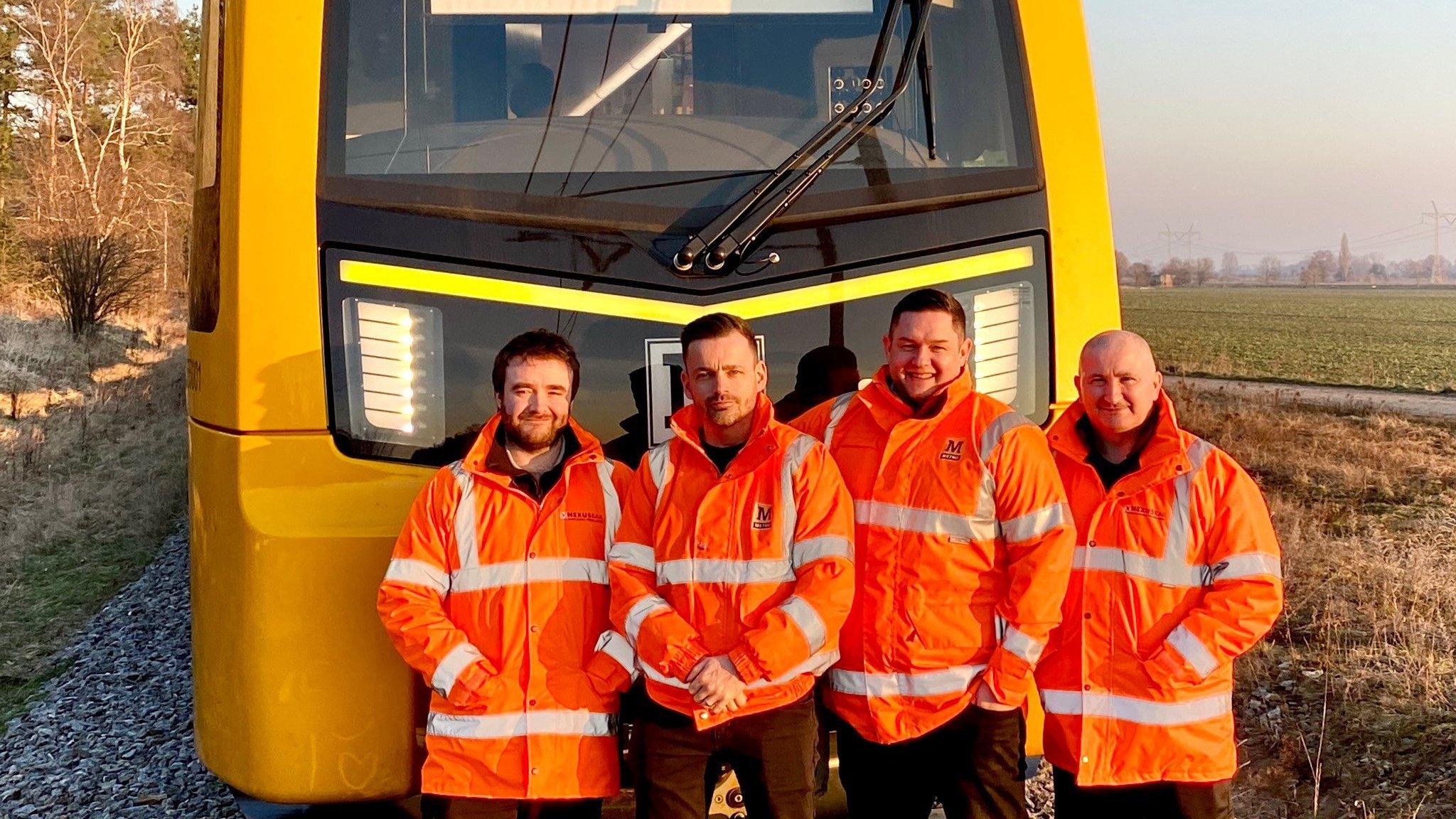
- Published20 July 2022
